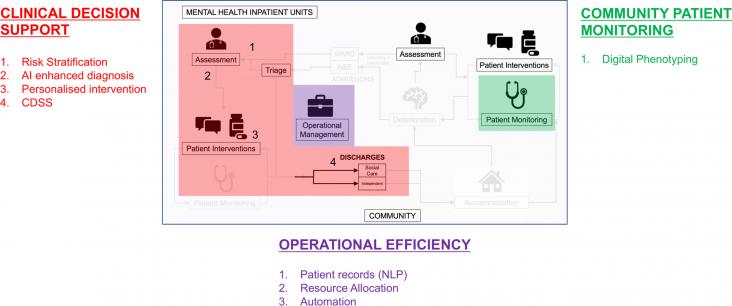This chapter reviews a global perspective of mental health and mental disorders.
Background: Community-based active case-finding interventions might identify and treat more people with tuberculosis disease than standard case detection.
Objectives: In the face of the SARS-CoV-2 pandemic, people with dementia and their carers are contending with serious challenges to their health and wellbeing, due to risk of severe illness, limiting

Alzheimer's Disease (AD) is a devastating neurodegenerative disorder of the brain, clinically characterised by cognitive deficits that gradually worsen over time.
Background: The pathological changes in Alzheimer's Disease (AD) and other neurodegenerative disorders begin decades prior to their clinical expression.

Introduction: Growing demand for mental health services, coupled with funding and resource limitations, creates an opportunity for novel technological solutions including artificial intelligence (AI).
Background: During the COVID-19 pandemic, the high workload, risk of infection, and safety issues for family members may pose a threat to the mental health of healthcare workers (HCWs) working in hosp
Objective: Information about the adverse effects of the COVID-19 pandemic on adolescent and adult mental health is growing, yet the impacts on preschool children are only emerging.
Background: Almost a quarter of the world's undernourished people live in India.
Poor weaning practice and malnutrition among under 5 (yrs) children are still major public health issues in Bangladesh.
